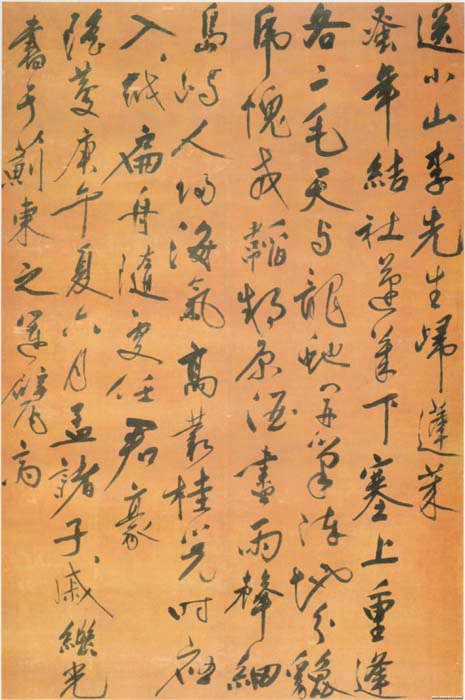Qi Jiguang (1528-1587) was an outstanding military strategist in the Ming Dynasty. The courtesy name was Yuanjing, his nickname was Nantang, and later his name was Mengzhu. A native of Dengzhou (now Penglai, Shandong). He was born in a general family. He liked to read military books since he was a child and practiced martial arts diligently. When he was young, he made the decision that "it is not my intention to be a prince, but I hope the sea will be peaceful" ("The Deepness of Tao Qiang" in "Zhizhitang Collection·Hengshan Manuscript") of poetry. At the age of 17, he inherited his father's position and served as the commander of the Dengzhou Guards. He led the soldiers and horses of the 24th Guards of the three battalions of Dengzhou, Wendeng and Jimo in Shandong, trained the navy, reorganized the armaments, and fought against the Japanese pirates who invaded the coast of Shandong. In 1555, he was transferred to Zhejiang and served as a staff general to resist Japanese pirates. In the thirty-eighth year of Jiajing (1559 AD), Qi Jiguang recruited 4,000 farmers and miners in Jinhua and Yiwu, Zhejiang, and selected fishermen to serve as sailors along the coast of Zhejiang, Qiantang River, Fuchun River and other places, and trained them into an elite new force. military. This was the Qi Jiajun who later frightened the Japanese pirates! In 1561, the Japanese pirates were defeated in Taizhou. The following year, he rushed to aid Fujian and destroyed the Japanese pirates' base camp in Hengyu (in the sea outside Ningde City). In 1563, aid was sent to Fujian. Two years later, he and Yu Dayou suppressed the Japanese pirates in Guangdong. They fought bloody battles for more than ten years and basically eliminated the Japanese pirates along the southeast coast.
In 1567, the first year of Longqing, he was transferred to the north to guard Jizhou (today's Jin County). Although Qi Jiguang's outstanding military exploits were due to his own outstanding abilities, it was also inseparable from the appreciation and support of powerful people. Among them were Tan Lun, the governor of Fujian who had long served in the southeastern coastal area, and Zhang Juzheng, an important minister in the central government.
However, Qi Jiguang fell into loneliness and desolation in his last few years. Seven months after Zhang Juzheng's death, he was transferred to the rank of Commander-in-Chief of Guangdong. Although his official position remained, he had actually lost his important position in guarding the imperial capital. A year later, the movement to liquidate Zhang Juzheng reached its climax. He and Li Chengliang, the commander-in-chief of Liaodong, were impeached and dismissed as party members of the former chief minister. Qi Jiguang didn't do anything for personal gain. After he was repelled, he became destitute and finally died of poverty and illness. The heroic path made all sympathizers at that time and later generations sigh with regret.
Qi Jiguang spent his entire life as a soldier and made outstanding achievements in fighting against Japanese invaders. He paid attention to military training, and was especially good at educating generals. He strictly enforced military discipline and clearly defined rewards and punishments. The "New Book of Ji Xiao" and "Record of Military Training" written by him are famous military books in the Ming Dynasty and are valued by military strategists. Qi Jiguang was born in martial arts, but in ordinary conversations, he could quote scriptures casually, drink wine and compose poems with civil servants, and socialize with them. At that time, the literary giant Wang Shizhen and Qi Jiguang had an extraordinary friendship. Amid his busy military affairs, he also found time to write poems and essays, and his collection of poems and essays is called "Zhi Zhitang Collection".

"Poetry for Sending Li Xiaoshan Back to Penglai" on paper. The length is 130.6 cm and the width is 90 cm. Collection of Shanxi Provincial Museum
This seven-character poem was given to his friend Li Xiaoshan and was written in the fourth year of Longqing in the Ming Dynasty (AD 1570). Although Qi Jiguang is not famous for his books, his writing style is smooth and unrestrained, and he has a heroic feeling in his chest.








